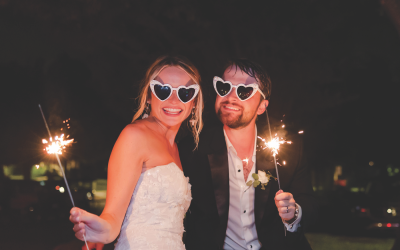Photo courtesy of Mark Swanson
If the road to Hell is paved with good intentions, the road to Broadway is paved with inspiration, perspiration, and their companions: trepidation, exasperation, desperation, determination, and if all goes well, celebration. Mark Swanson knows that road. Every block of it.
Figuring 20 New York City blocks to the mile, Augusta’s Le Chat Noir is about 13,341 blocks off-Broadway.
That’s where Mark Swanson started with his first full-length musical, Misconception, an edgy Christmas romp written for Le Chat Noir in 2011. But his second musical, A Scythe of Time, made a leap of 13,337 blocks last summer. It ran on Manhattan’s 36th Street, a mere four blocks off-Broadway, at the June Havoc Theater.
If the road to Hell is paved with good intentions, the road to Broadway is paved with inspiration, perspiration, and their companions: trepidation, exasperation, desperation, determination, and if all goes well, celebration.
Mark knows that road. Every block of it.
At the celebratory party on opening night last July, family and friends laughed, everyone swirled around, but for Mark, “It was a moment when the world stopped.” The dreams of his whole life had been realized that night. He had reached his destination.
But what a trip it had been.
Back in the early 1990s Mark did some theater as a music student at Augusta College. In fact, he met his wife-to-be, Nicole, on the Maxwell Theater stage in Brigadoon. “It was something about the kilt I was wearing,” he said. “She actually asked me out for our first date.” They graduated, married, and moved to California where he tried to get into film music. He did some work for Showtime and a couple of short films, but California grated on him.
“After five years I grew tired of, ‘Hi, my name is Mark. What can you do for me?’ Relationships there are very surfacey. In that field there’s nothing of substance. It made me miss Georgia.” And now that he and Nicole had two daughters, they decided to come home to Augusta.
While in California, Mark had developed expertise working with adults with developmental disabilities. Since music was not going to pay the bills for his growing family, his father-in-law helped him set up Accent, Inc., a company which provides services to the disabled, in 2001. That continues to make a meaningful career for Mark, but it never replaced his need to make music.
That need became painfully clear in 2002 when a filmmaker-friend of his in California won an Academy Award for a short film for which Mark had been considered as composer. “That was a gut-punch. I felt like I had made a huge mistake in leaving California too early. I was happy my friend Ray McKinnon won, but I thought, what am I doing here? I should be making music. There were some dark times.”
Then in 2006, Le Chat Noir opened, offering cutting-edge theatre in downtown Augusta. Mark met Chat director Doug Joiner, and soon he was composing and performing music for the theater’s productions. Composing drew on Mark’s undergraduate training with the late Eloy Fominaya.
“I was amazed at how much I retained from my time with Dr. Fominaya. He said I had a gift for melody. As a kid I was always drawn to Paul McCartney’s songs, and I had an affinity for Billy Joel. I loved Mozart and his melodies. Dr. Fominaya taught me what to do with a melody, how to spin it out, make it recur. There can be so much richness and texture in just one melody. He opened up that micro-world of looking at the intervals in the tune, how they relate to one another, how you can make a piece out of that one melody. He gave me the tools I’ve been using ever since.”
Mark’s first major opportunity to use those tools came when Joiner asked him to write a Christmas musical—an “edgy” Christmas musical—in 2011. “We talked out lots of ideas, lots of them terrible.” But once they settled on an approach—to give characters back at the time of the Nativity a modern thought process and vocabulary—the work of composition went quickly. Mark wrote both book and music for Misconception in 10 weeks.
“The melodies came so easily to me I don’t feel I should take credit for them. Misconception was a gift from God. Through this process I tapped into whatever it is in your mind that releases what you’re supposed to be doing…” Mark swallowed hard to control the emotion that suddenly constricted his throat. “I could almost call myself a composer.”
“Doug would say, ‘We need a song here,’ and I’d go home and write it. I suddenly had access to something in my brain. The Muse pushed and poked me. It was terrifying and beautiful. The melodies came so easily to me I don’t feel I should take credit for them. Misconception was a gift from God. Through this process I tapped into whatever it is in your mind that releases what you’re supposed to be doing…” Mark swallowed hard to control the emotion that suddenly constricted his throat. “I could almost call myself a composer.”
The show treads a razor’s edge between satire and sacrilege. Mark never wanted it to cross into sacrilege—his father is a Baptist minister.
“I had so many fears about how that show would be received. But the house was electric. It was the most magical moment I’d ever had as a composer. If that’s all I’ve ever done, I can die happy. At age 45, for the first time I felt at peace with myself.”
Misconception was so popular that Le Chat Noir produced it again the following Christmas. Then it won a 10-day run in DC at the 2013 Capitol Fringe Festival, winning enthusiastic audiences, raves in the press and, more importantly, the interest of another Fringe Festival playwright whom Mark met there: Alan Harris, a writer for the BBC and an award-winning playwright who lives in Wales.
Mark told Harris about an idea he’d been playing with: turning a couple of Edgar Allan Poe stories into a musical. Poe’s stories tell of the price of fame, of writers so hungry for it that they will write articles documenting their own suicides in order to get published. Was Harris interested in collaborating?
Harris loved the idea. The two started working together between Wales and Georgia via Skype.
“Watching the professionals interpret and perform the work felt like walking in some magical land. You created this thing and suddenly everything you imagined is right there in front of you.”
—Swanson
Thus was born A Scythe of Time. Perhaps conceived is more like it, because the show went through at least 75 versions before it was produced. And it looked like it might never get born at all: in the end, Le Chat Noir pulled out of the production. But Mark and Harris continued their collaboration anyway. They arranged a read-through, and took a hard look at what worked and what didn’t. They simplified the plot, cut some characters and songs, strengthened character arcs, and then submitted the much-revised script to the prestigious New York Musical Festival.
Scythe was one of more than 230 new musicals submitted to the 2016 festival. The handful accepted would receive a full New York production with Broadway casts, directors, musicians, and production staffs. Only 13 scripts would make the cut. In February Mark got the word: A Scythe of Time was headed for New York.
Cue the trumpet fanfare.
But there was little time for euphoria. “We had no idea what a test New York would be after the play was accepted.” The first part of that test was money: the Festival provides invaluable access to New York’s professional theatre scene, but it doesn’t come cheap. The Festival would provide a $5,000 subsidy; the Scythe team would have to raise the rest: about $90,000. In six months.
Nicole, the production’s producer, took over fundraising to free Mark up for composing and revising. She insulated him from the worry, the planning of fundraising events, the appeals on social media, the awkward phone calls to potential donors. The community responded with enthusiasm. Friends and supporters donated about $60,000. The Swansons borrowed the rest.
There were trips to New York to hire directors, a general manager, designers; to audition 230 equity actors vying for parts (one of those parts was won by Augustan Brandon Brune); and to offer lead roles to so-called “fancy people”—actors well-known for their Broadway success.
Scythe ended up with a dream team, including David Alpert (If/Then) as director, Lesli Margherita (the original Mrs. Wormwood in Matilda) as the female lead, Zenobia, and P.J. Griffith (Sleep No More) as Blackwood. A weekend “boot camp” introduction to the festival in February impressed upon Mark and Nicole the extraordinary talent in the world they had just entered.
“The festival occurs in summer, the off-season on Broadway, so professionals are looking for something to put their stamp on, something to challenge them to further their careers. Each show had a table at a mixer in Manhattan—it was like a job fair—and directors, choreographers, stage designers were pitching themselves at us for three hours! Not until then, when so many people wanted our attention, did it become apparent what a big deal this was.”
Rehearsals began June 23, about a month before the opening. Mark worked with the directors and cast. “Watching the professionals interpret and perform the work felt like walking in some magical land. You created this thing and suddenly everything you imagined is right there in front of you.”
Director David Alpert respected Mark’s views, but he knew what the play needed to be better. “Gulp. You become very attached to your creative work. You could create a gorgeous song, but if it doesn’t further the story, it’s useless.”
So some characters were deleted, dialog cut, more added. Co-writer Harris, present via Skype, re-wrote furiously; Mark discarded two songs he loved and had to write two new ones. The actors got a new script every day—it didn’t reach its final form until six days before the opening.
After that first week of rehearsal in New York, Mark drove home. He had only a day or two to write a song for Lesli Margherita, a Broadway star. On the long drive to Georgia, he sang themes and snatches of melody into his iphone. The song was shaping up. As soon as he got home, he put it all together on the piano. He was done in an hour-and-a-half and sent it up the next day: “Good Soul,” Zenobia’s anthem, was a hit.
Mark and Nicole returned to New York for the last three weeks of rehearsal. They sublet an apartment in Little Italy where Mark, orchestrating his music for the ensemble that would perform it, had to tune out the accordion player downstairs who seemed to be playing “O Sole Mio” constantly. Nicole, meanwhile, was writing one check after another.
Finally it was July 21, opening night. All gussied up—“I was in heels, a leather skirt, looking hot!” Nicole said—they headed for the subway to the theater only to discover that their train line was shut down for the night. They raced to another subway line, emerged much later than they’d planned, ran a block to the theater where fans from Augusta waited in the lobby, “And I face-planted,” Nicole said. “I fell on my hands and knees on the lobby floor in front of all those people.”
No harm done. “Don’t take ‘break a leg!’ literally,” someone advised. She got up, they greeted their friends, and took their seats. The lights went down, the orchestra played the overture, the curtain went up, and the hard work of many months turned to magic.
Scythe created lots of buzz, sold out all five performances, and was extended with a sixth. The show received the festival’s outstanding overall design award and Lesli Margherita was named the festival’s outstanding actor; the show also won the publishing award, which makes the script available to theatre groups all over the country.
The New York Times reviewer called Scythe a “dark and delectable little comedy,” a “ghoulishly prankish satire” which “I kept envisaging in a jewel-box theater somewhere, charming the crowds.” Perhaps the reviewer was on to something.
A team of Scythe backers is working toward a four- to six-week Off-Broadway run next fall. It would cost $600,000-$700,000. That’s about six times the cost of last summer’s production. Can they raise that much? Mark recites a statement by poet T.S. Eliot which has become his mantra: “Only those who risk going too far can discover how far they can really go.”
“This is not the end,” Mark said. “It feels like we’re in the middle of something.”
Article appears in the November/December 2017 issue of Augusta Magazine.






